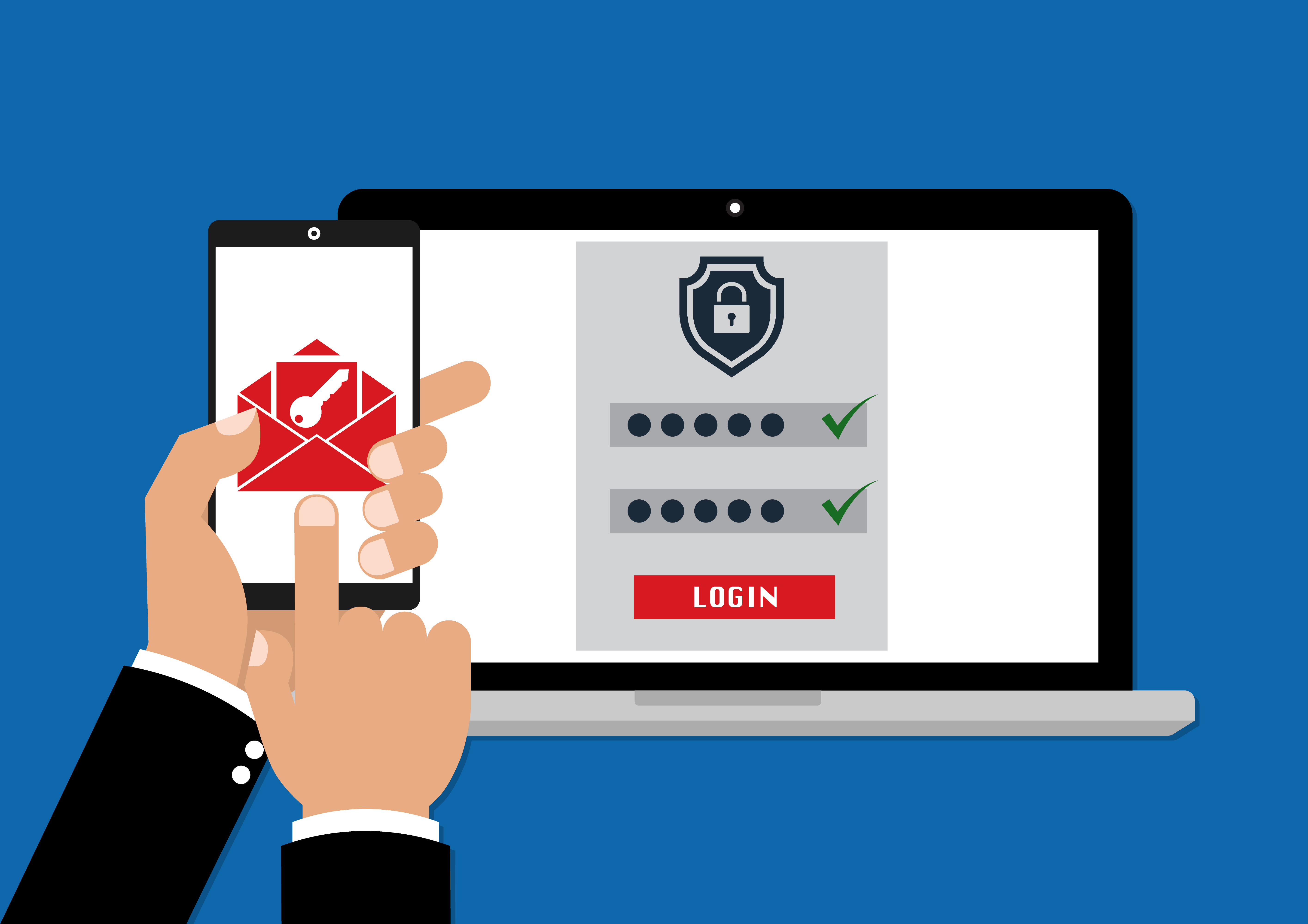Passwords today are like spare keys that have been given out to too many friends and neighbors. Common password content like birthdays, favorite sports teams, or names of children or pets are easily found on social media accounts.
Cybersecurity is vital to a successful business, especially as hackers try to exploit the companies they expect to be the least protected: small-to-medium sized businesses. Your accounts need an extra layer of protection so that your business network does not fall into the wrong hands. This is where multi-factor authentication comes in. Multi-factor authentication requires two or more pieces of evidence before a user is granted access to a protected account or device. We see this in practice all the time. For instance, at the ATM, the user must present both the correct debit card, and enter the right PIN. This is an example of two-factor authentication at work. The system works by requiring information the end user possesses, like a PIN or a password, with an object the intended user should have on hand.
Today’s businesses rely on cloud storage. The cloud is an incredible efficiency tool that empowers your workforce to access what they need when they need it. With that ease of access comes a risk that your information could be accessed by the wrong individuals, especially if you have not taken every precaution to secure it. When your sensitive business accounts and databases are secured only by passwords, you are putting yourself at risk, even when the passwords are complex and changed frequently. You need backup protection in the event that passwords are compromised.
There are many products that help you add this layer of protection to your network. Trying to sift through, select, and implement these products can be time consuming and confusing. At the same time, you know that an upfront investment of time and resources into cybersecurity can make all the difference when hackers strike. Multi-factor authentication creates more work for the hackers, and more opportunities for your defenses to protect your network. If someone is trying to invade an employee’s email account, guesses the password, but then needs to enter a randomly generated code that went to your employee’s phone or workplace computer, they may move on to invade a less protected network. Unlike a PIN, which suffers many of the same pitfalls of a password, these codes may only work for a limited period of time and have no personal connection to the user, meaning they cannot be guessed. This type of system gives you greater confidence that the people accessing your network are the ones meant to be there.
Setting up multi-factor authentication can have some unforeseen complexities, and is best handled by IT professionals who have the expertise and skillset to implement this useful protection for your business.
Anchor Network Solutions has the experience and cybersecurity expertise you need to ensure your network is as secure as possible. Contact us today to talk about your next steps.

